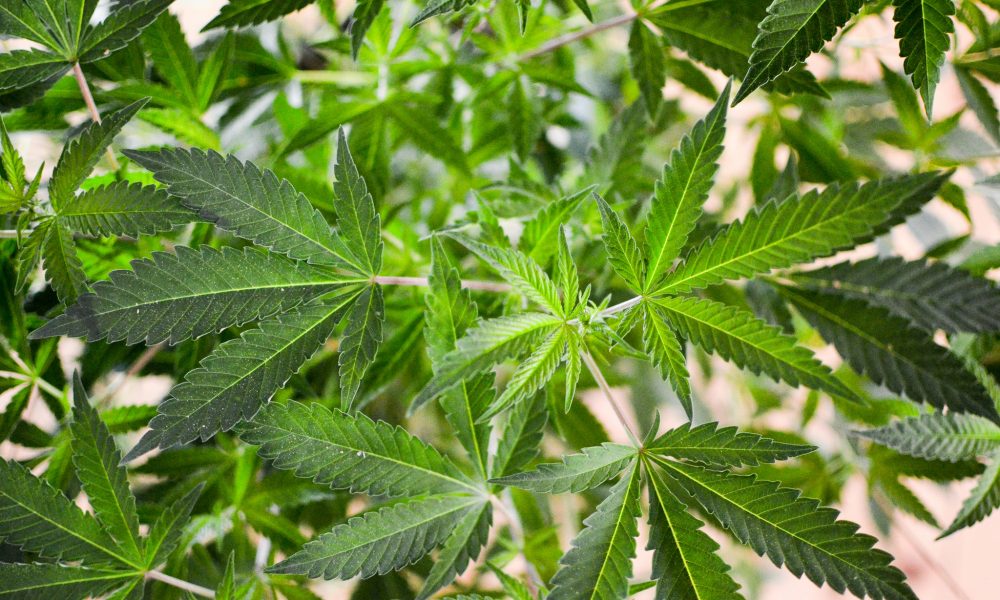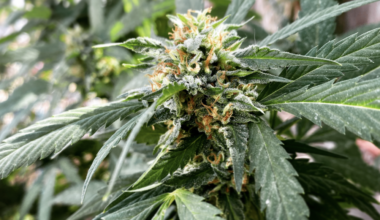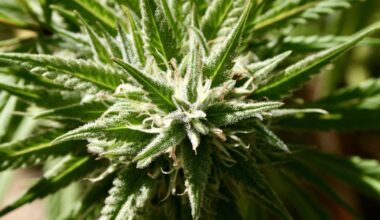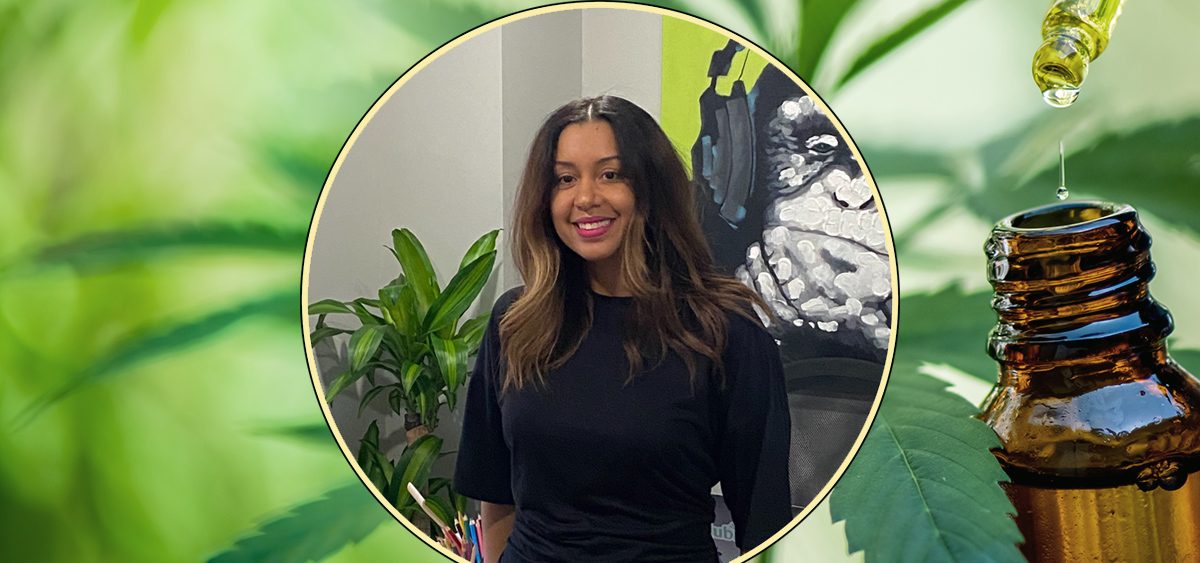North Dakota marijuana activists are stepping up their push to convince voters to approve a legalization initiative on the ballot next month, releasing two radio ads featuring supporters and announcing grassroots “get out the vote” plans.
New Approach ND turned in signatures for the legalization measure in July, and Secretary of State Al Jaeger (R) officially certified the initiative the following month.
Now the campaign is promoting two new, 60-second radio ads that will air statewide, including one voiced by the campaign’s treasurer, who is also a former police officer, and another from military veteran Scott Brand.
“When I returned home from Iraq in 2007, I saw fellow veterans suffering from PTSD and debilitating pain. For many people struggling with serious health issues, marijuana is the only thing that helps,” Brand says in his ad. “But far too many people who need marijuana for medicinal benefits can’t access it in North Dakota.”
“Legalized and regulated adult use of marijuana changes that,” he said. “As a veteran, I support Measure 2. It will ensure veterans and other patients can get the relief they deserve. This is a chance to show each other support and compassion. Vote Yes on 2 on November 8.”
In the separate ad featuring campaign treasurer Mark Friese, the attorney and former police officer starts by saying that it’s “time for a change, and it starts with us.”
“During my five years as a patrol officer with the Bismarck Police Department, I witnessed firsthand the waste of resources arresting and prosecuting people for small amounts of marijuana,” he said. “Measure 2 allows police to spend more time and resources on more serious and violent crimes.”
He added that neighboring Montana is already “seeing the benefits” from a 2020 vote to legalize cannabis, which created an industry that he said is “creating jobs and raising billions in new revenue to invest in drug treatment programs and services for veterans.”
“It’s time to take a new, smarter approach in North Dakota. Let’s vote yes on 2,” he said.
New Approach ND also announced on Monday it will be launching a grassroots campaign this week to distribute yard signs and other promotional materials to supporters across the state.
The legalization ballot initiative would allow adults 21 and older to purchase and possess up to one ounce of cannabis and grow up to three plants for personal use.
Here’s a breakdown of the measure’s key provisions:
Adults 21 and older could purchase and possess up to one ounce of cannabis, four grams of marijuana concentrate and flower produced from up to three plants grown for personal use, as long as that cannabis is stored in the same location that the plant was cultivated.
The Department of Health and Human Services, or a different agency designated by the legislature, would be responsible for creating rules for the program and overseeing licensing for marijuana businesses.
Regulators would have until October 1, 2023 to develop rules related to security, advertising, labeling, packaging and testing standards.
The department could only license a maximum of seven cultivation facilities and 18 retailers. In an effort to mitigate the risk of having the market monopolized by large companies, the initiative stipulates that no individual or entity would be permitted to own more than one cultivation facility or four retail locations.
There would be specific child custody protections for parents who use cannabis in compliance with state law.
Employers could continue to enforce existing drug policy prohibiting marijuana use.
With respect to past criminal records, the initiative would not provide a pathway for expungements, though activists say they intend to work with the legislature on enacting separate legislation addressing that issue in 2023.
Local jurisdictions would be able to prohibit marijuana businesses from operating in their area, and cannabis companies would also be required to adhere to local zoning rules.
The state’s five percent sales tax would apply to cannabis products, but no additional tax would be imposed specifically for marijuana.
Manufacturers would need to pay a biennial $110,000 registration fee and retailers would need to pay $90,000. Those funds would support the department’s implementation and administration of the adult-use program.
The initiative does not lay out any specific use of funds collected from these fees beyond administration.
Public consumption would be prohibited.
A similar measure was introduced in the legislature in 2021. The bill from Rep. Jason Dockter (R) passed the House, but it was defeated in the full Senate after advancing out of committee there.
—
Marijuana Moment is tracking more than 1,500 cannabis, psychedelics and drug policy bills in state legislatures and Congress this year. Patreon supporters pledging at least $25/month get access to our interactive maps, charts and hearing calendar so they don’t miss any developments.![]()
Learn more about our marijuana bill tracker and become a supporter on Patreon to get access.
—
Following that defeat, some senators devised a new plan to advance the issue by referring it to voters on the 2022 ballot. The resolution moved through a key committee last year, but the Senate also blocked it.
Representative Matthew Ruby (R), who is a member of the campaign’s sponsoring committee, previously said that the initiative “is a conservative approach to cannabis legalization based on legislation passed by the North Dakota House of Representatives.”
“It balances personal freedom with personal responsibility,” he said. “Adults will no longer be punished for using cannabis—but only if they do so safely and responsibly. As voters have a chance to review the measure in detail, I’m confident a majority will agree this is the right approach for North Dakota.”
There have been repeated attempts by activists to enact legalization in the Peace Garden state.
Advocates with the group North Dakota Cannabis Caucus started collecting signatures to qualify a constitutional amendment legalizing cannabis for the 2022 ballot, but they did not gather enough by a January deadline.
New Approach ND’s David Owen previously led an effort to place a legalization measure on the 2018 ballot that was defeated by voters. They filed another initiative for 2020, but signature gathering complications largely caused by the coronavirus pandemic got in the way.
Meanwhile, a bill to significantly expand marijuana decriminalization in North Dakota cleared the House last year but was later defeated in the Senate.
That legislation would have built upon an initial marijuana decriminalization law that was enacted in 2019. Under the current statute, possession of half an ounce or less of cannabis is an infraction punishable by a fine of up to $1,000, with no jail time. The defeated proposal would’ve made possession of up to an ounce a non-criminal offense that carried a $50 fine.
North Dakota voters approved a medical cannabis ballot measure in 2016.
House Majority Leader Chet Pollert (R) previously said that he’s not “a marijuana person,” but he’s acknowledged that cannabis legalization is coming. While he would have previously been inclined to oppose a legalization bill, Pollert said voter approval of a legalization initiative in South Dakota has made him reconsider, adding that the legislature should “take a long, hard look” at the policy change.
Meanwhile, voters in neighboring South Dakota will also have a chance to approve a marijuana legalization ballot initiative in November. Voters approved the reform in 2020, but the vote was invalidated following a legal challenge spearheaded by Gov. Kristi Noem (R).
Photo courtesy of Philip Steffan.
Medical Disclaimer:
The information provided in these blog posts is intended for general informational and educational purposes only. It is not a substitute for professional medical advice, diagnosis, or treatment. Always seek the advice of your physician or other qualified healthcare provider with any questions you may have regarding a medical condition. The use of any information provided in these blog posts is solely at your own risk. The authors and the website do not recommend or endorse any specific products, treatments, or procedures mentioned. Reliance on any information in these blog posts is solely at your own discretion.







